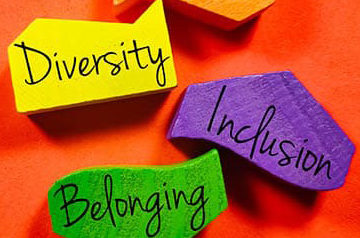Diversity, Equity, Inclusion & Belonging
NAC strives to create and maintain a diverse, equitable, and inclusive workplace at all levels.
Diversity, Equity, Inclusion & Belonging

NAC strives to create and maintain a diverse, equitable, and inclusive workplace at all levels.
NAC was founded on the principle of inclusion: inclusion of children with special needs growing up in hospitals, foster care or with birth families. NAC recognizes that communities of color have been impacted by systemic racism throughout history, leading to significant disparities in child welfare, health care, housing, education and employment. The challenges of raising a child with complex medical conditions and disabilities is compounded when faced with growing up in poverty or with inadequate resources. We must work together to dismantle unfair policies and practices that sustain inequity while engaging with families day to day in a manner that creates greater access to needed resources.
Human capital is our most valuable asset and it is strengthened the more we are able to mirror the communities we serve. When clients see themselves reflected in a diverse staff, a sense of trust and credibility is engendered, giving rise to collaborative engagement. When staff feel empowered to bring their authentic selves to work, greater productivity, innovation, and engagement ensues. NAC endeavors to create and maintain a diverse, equitable and inclusive workplace – at all levels – where individuals of every race, ethnicity, national origin, religion, age, gender, gender identity and expression, sexual orientation, education and ability feel valued and respected, and whose ideas and contributions are integrated into the fabric of our organizational culture.
NAC acknowledges that our vision of inclusion and belongingness requires conscious and deliberate action that can only be attained through a sustained and long-term commitment. To this end, we strive to commit to the following practices:
- Develop a system for being more intentional and conscious of bias as it relates to our work with clients, and during the hiring, promoting and evaluating processes within our workforce;
- Commit time and resources to building intercultural competencies through training, cross-cultural sharing, use of essential and updated language and brave conversations;
- Practice and encourage transparent communication in all interactions and across all supervisory lines and structures;
- Rethink the ways we interact, removing explicit and implicit barriers to shared decision-making and full participation;
- Explore potential underlying, unquestioned assumptions that interfere with inclusiveness;
- Acknowledge and dismantle any inequities within our policies, systems, programs and services;
- Examine and commit to eliminating systemic inequities that impact our organization’s work and the communities we serve, in a way that is consistent with our mission.
